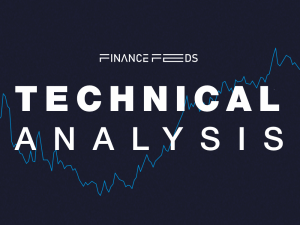Retail FX bombshell: Bumbling FCA official says FX brokerage services will have to be paid for by asset managers
“I work closely with preparing for MiFID on the sell-side. To me, this increasingly feels like a simple bank tax. I am guessing that retail investors may have indirectly paid something like 10-15 bps of their annual fund management fees into sell-side research consumption ( pure guesswork).” – We could not agree more.

Ever since the inauguration of regulatory oversight for non-bank financial services and electronic markets activity in Britain in 1985 when the Securities and Investments Board (SIB) began to form the framework for maintaining the good name and stature of what is today’s most influential, modern and world-leading financial center, it has been widely accepted that regulation via quasi-government bodies is a positive thing indeed.
Here in London this week, however, a reminder of the difference between the highly respected electronic trading sector that is instrumental to London’s financial powerhouse status and stands it as the most highly respected financial technology and OTC derivatives center in the world and the beige cardigan-wearing officials that inhabit the offices of the regulatory authorities has made its presence felt.
In the advent of the European Securities and Markets Authority (ESMA)’s proposed implementation of MiFID II infrastructure directive in January 2018, a regulatory official from the Financial Conduct Authority (FCA) addressed senior industry executives in the Square Mile this week, stating that under the new rulings, that if a sales trader provided an idea with “substantive” analysis or insight to a retail client, that would need to be paid for by an asset manager to avoid being classed as an inducement, according to multiple sources who attended the event and interpreted by the Financial Times this week.
The response from the brokerage industry to this rather ambiguous statement from the FCA was reactive, to say the least.
“Whilst this is logically consistent with everything the FCA has said on unbundling, it will still come as a bombshell,” said Richard Balarkas, director of Quendon Consulting and former chief executive of Instinet, an agency broker.
This is effectively a surprise to agency firms and internalizers alike, as the FCA has previously stated that research that is provided to traders should be ‘unbundled’ from the price charged, however to now learn that asset managers must charge clients an external fee for research adds an extra cost to the retail trading ecosystem, negating its previous advantage over hedge funds, wealth managers and exchanges, that being market access to multi-asset, liquid assets for a fraction of the cost.
Speaking today to several institutional FX and electronic trading industry executives in London, FinanceFeeds can glean that this FCA official was alluding to a stipulation under MiFID II that any advice or market ‘color’ or analysis will have to be paid for on a fee basis and provided by an independent asset manager, rather than be included in the services provided by brokerages.
This has been interpreted by various professionals in the industry in London as a measure to stop the research costs being bundled into the cost of trading. One brokerage executive today explained to FinanceFeeds in London “It’s the parallel with what the retail brokers do that worries me.”
Another executive demonstrated concern over the costs associated with this that may arise from such legislation. “Asset manager then morphs to small hedge fund which morphs to a MAM account which morphs down to a successful day trader. Conversely, can IG Group, or a similarly large retail firm, run an introduction to trading seminar? Let’s say this costs them £1000, and attracts 10 clients, and they onboard 1 who then pays back the £1000 plus some more perhaps, or would IG Group need to charge everyone £100?”
FinanceFeeds considers that if this is the case, it is potentially detrimental to retail brokerage business, because high touch, seminar-based client interaction is very important, is popular with clients and provides a very reasonable access point to the market, with the help of their broker in educational and analytical matters.
A senior executive at a retail FX brokerage in London expressed his opinion on this to FinanceFeeds. “It’s the implications for retail brokerage that have me thinking. Sales traders or PCMs will typically encourage clients to trade by providing this type of market color. The cost of this is being bundled in with the transaction cost under current procedure, and then content produced by sales traders who take orders on trades and typically advise clients by highlighting trends and “market color” — would also count as research. As you say, Andrew, it’s ambiguous probably as it’s come off the back of what was said at an event rather than a written message.”
Wider comment has been quite incisive on this matter this week.
One respondant to the diatribe at the conference during which the FCA official delivered this news responded ”
The industry was given years to demonstrate greater control over how client funds were used to compensate brokers for a variety of services.”
“Some of these services were of value, some not, and some payments were nothing more than bribes eg commission allocation in order to achieve favourable IPO allocations. The industry did nothing but whinge and bleat about how difficult it is to value certain services, and make sneering threats about unintended consequences (the last resort of a pathetic defense). This is why regulators have to act. In two years time there will be a realignment of consumption patterns with fund managers buying what they need, from the best available sources eg industry experts, journalists, consultants, and maybe some full time analysts. The old model of teams of sell side analysts doling out pointless product is dead : get over it” he said.
Another senior executive stated “I work closely with preparing for MiFID on the sell-side. To me, this increasingly feels like a simple bank tax. I am guessing that retail investors may have indirectly paid something like 10-15 bps of their annual fund management fees into sell-side research consumption ( pure guesswork).”
“Now the regulator moves this over to the buy side to pay. Then the buy side moves it over to its subcontractors (sell side). So far so good, a bank tax. Due to the oldest negotiating strategy, best research houses get in but at a price set by the worst players. The resulting price deflation drives the winners to lay off people and cut coverage, most likely in smaller companies. Their price discovery and cost of capital goes up for these, and they are the future of any economy. Unemployed people no longer pay taxes. And buy side owners why nobody is interested in their smallcap holdings anymore. And yes, governments will slap a VAT on research and steal the savings away from the retail investors. Millions of hours spent and lots of tax revenues lost for nothing” he said.
Given the rambling monologue doled out last month by CySec Chairman Demetra Kalogerou, to which FinanceFeeds was party in Cyprus, the understanding of requirements under the MiFID II directive remains very much outside the abilities of regulatory officers.
Those requiring absolute clarity on these matters should consult specialist regulatory technology and advisory practices, as this is the best means of adherence whilst maintaining the main components of a brokerage.









